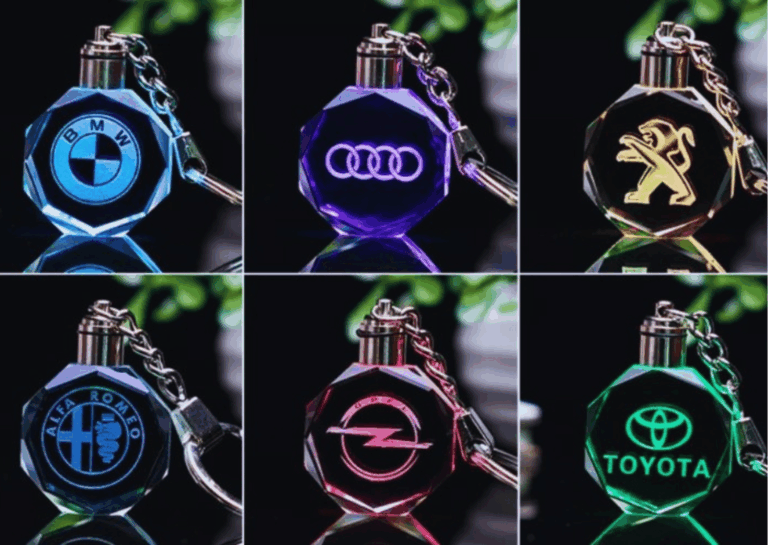Most Unreliable Car Brands UK: A Comprehensive Guide to Avoiding Automotive Headaches
Most Unreliable Car Brands UK: A Comprehensive Guide to Avoiding Automotive Headaches cars.truckstrend.com
Owning a car in the UK is often a necessity, but it can quickly become a financial and emotional drain if you pick an unreliable model. The dream of seamless travel can turn into a nightmare of frequent breakdowns, costly repairs, and frustrating garage visits. Understanding which car brands and models tend to be less reliable is crucial for any prospective buyer, allowing them to make informed decisions that save money, time, and stress in the long run.
This comprehensive guide will delve into the world of car reliability in the UK, exploring what makes a car unreliable, how to identify common culprits, and most importantly, how to navigate the market to avoid making a costly mistake. We’ll provide practical advice, actionable insights, and a detailed look at the financial implications of owning a less-than-stellar vehicle.
Most Unreliable Car Brands UK: A Comprehensive Guide to Avoiding Automotive Headaches
What Constitutes Unreliability in a Car?
Before naming names, it’s vital to define what "unreliable" truly means in the context of a car. It’s not just about a single breakdown; it’s a pattern of issues that impact ownership experience. Key indicators of unreliability include:
- Frequent Breakdowns: The most obvious sign. Cars that frequently stop working or require roadside assistance are inherently unreliable.
- Recurring Faults: Even if a car doesn’t break down entirely, persistent issues like warning lights, electrical glitches, or performance problems that keep reappearing after repairs are a strong indicator of underlying unreliability.
- High Repair Costs: Beyond the frequency, the cost of repairs plays a huge role. Cars that require expensive parts or specialized labour for common faults contribute significantly to a poor reliability score.
- Time Off the Road: The inconvenience of a car spending extended periods in the garage, even for routine fixes, impacts daily life and adds to the frustration.
- Poor Owner Satisfaction: Surveys often reflect owners’ general sentiment. Low satisfaction scores related to unexpected repairs or dealership service are strong signals.
- Complex Systems Prone to Failure: Modern cars are packed with technology. While innovative, complex electronic systems, advanced driver-assistance features, and intricate engine designs can sometimes introduce more points of failure.

Reliability is typically measured through extensive surveys of car owners, often conducted by consumer organisations like Which? and What Car?, or warranty providers like Warrantywise. These surveys gather data on the number of faults experienced, the type of faults, and the cost and time involved in fixing them.
The Data Landscape: How Unreliability is Measured in the UK
In the UK, several reputable sources compile and publish car reliability data, offering invaluable insights for consumers. These include:
- Which? Car Reliability Survey: One of the most respected surveys, collecting data from tens of thousands of car owners on faults, breakdown rates, and repair costs for vehicles of various ages. They typically publish a reliability index for brands and specific models.
- What Car? Reliability Survey: Similar to Which?, What Car? gathers extensive data from owners, categorising faults by severity and providing clear reliability ratings for models and brands.
- Warrantywise Reliability Index: As a leading extended warranty provider, Warrantywise has access to a vast database of claims data, offering a unique perspective on which cars and components are most prone to failure and how much repairs typically cost.
- J.D. Power UK Vehicle Dependability Study (VDS): While less frequently updated for the UK market specifically compared to US, J.D. Power conducts studies based on problems experienced per 100 vehicles (PP100) by original owners.
It’s important to note that reliability data can shift year-on-year, and a brand’s overall reliability doesn’t mean every single model is unreliable, or vice-versa. Specific models, engine variants, and even manufacturing batches can have different reliability profiles.
Common Culprits and Factors Contributing to Unreliability
While it’s difficult and potentially misleading to definitively brand certain manufacturers as "the most unreliable" without specific, up-to-the-minute survey data (which fluctuates), historical trends and recurring themes in reliability surveys often highlight particular categories or specific models.
Categories of Brands Often Appearing on "Less Reliable" Lists (with caveats):
- Some Premium European Brands: Surprisingly, many premium marques (e.g., Land Rover, certain Mercedes-Benz or BMW models, older Audi models) sometimes feature on lists of less reliable cars. This is often due to the sheer complexity of their technology, advanced electronics, and expensive, specialised parts. While they offer luxury and performance, these sophisticated systems can be prone to glitches or costly failures as they age.
- Certain Niche or Low-Volume Brands: Brands with smaller production runs or less mature dealer networks might struggle with parts availability or consistent build quality compared to high-volume manufacturers.
- Brands with Known Specific Design Flaws: Sometimes, an entire brand suffers from a reputation hit due to a widespread issue with a particular engine (e.g., timing chain issues, DPF problems) or transmission (e.g., certain automatic gearboxes) across multiple models.
- Older Models from Any Brand: As cars age, regardless of the manufacturer, components wear out. However, some brands’ older models hold up better than others.
Common Reliability Issues Across Brands:
- Electrical/Electronic Faults: Modern cars are heavily reliant on electronics. Issues with infotainment systems, sensors, wiring harnesses, or complex ECUs are frequent and often expensive to diagnose and fix.
- Engine Issues: While less common in newer cars, older models or specific engine designs can suffer from turbocharger failures, DPF (Diesel Particulate Filter) blockages (especially for low-mileage city driving), head gasket failures, or timing chain problems.
- Suspension and Steering: Wear and tear on suspension components (bushes, springs, dampers) and steering systems (power steering pumps, racks) are common, especially on UK roads.
- Braking System Issues: Beyond pads and discs, problems can arise with ABS modules, calipers, or brake lines.
- Transmission Problems: Both manual and automatic gearboxes can develop issues, ranging from clutch wear to complex internal failures. Automatic transmissions, particularly complex dual-clutch units, can be very expensive to repair.
- Air Conditioning: AC systems are prone to leaks, compressor failures, and electrical faults.
The Hidden Costs and Consequences of Unreliability
The price tag on an unreliable car extends far beyond the initial purchase. These hidden costs can quickly erode any perceived savings:
- Direct Repair Costs: The most obvious. These can range from hundreds to thousands of pounds per incident.
- Increased Insurance Premiums: Some insurers factor in a car’s known reliability issues, potentially leading to higher premiums.
- Faster Depreciation: Unreliable cars often have a poorer resale value, as their reputation precedes them in the used car market.
- Lost Time and Productivity: Time spent dealing with breakdowns, arranging repairs, and waiting for your car to be fixed is time you could be working, relaxing, or spending with family.
- Alternative Transport Costs: While your car is in the garage, you might incur costs for public transport, taxis, or rental cars.
- Stress and Frustration: The constant worry of when the next breakdown will occur, or the inconvenience of being stranded, takes a significant toll on mental well-being.
- Safety Concerns: Recurring faults can sometimes compromise safety features, leading to further anxiety.
How to Research and Avoid Unreliable Cars
Forewarned is forearmed. Here’s how to conduct thorough research and minimise your risk:
- Consult UK Reliability Surveys: Start with the latest surveys from Which?, What Car?, and Warrantywise. Pay attention to both overall brand rankings and specific model reliability scores, especially for the year you are considering.
- Read Owner Reviews and Forums: Websites like Honest John, Parkers, and specific model forums are goldmines of real-world experiences. Look for recurring complaints about particular models or common faults. Be wary of isolated incidents, but pay close attention to patterns.
- Check Recalls and Technical Service Bulletins (TSBs): Government websites (like GOV.UK for vehicle recalls) and manufacturer sites can list official recalls. TSBs (internal manufacturer documents) indicate common issues and recommended fixes, which can sometimes be found via online searches.
- Get a Pre-Purchase Inspection (PPI): For used cars, a professional independent mechanic’s inspection is invaluable. They can identify existing faults, potential future problems, and signs of poor maintenance.
- Examine Service History Thoroughly: A full, documented service history indicates a car has been well-maintained. Look for evidence of regular servicing and any major repairs that have been undertaken. Missing history is a red flag.
- Understand Common Faults for Specific Models: Even generally reliable brands can have a specific model or engine variant that is known for issues. Research these specific weaknesses.
- Consider Warranty Options: For new cars, understand the manufacturer’s warranty. For used cars, consider purchasing an extended warranty, but read the terms and conditions carefully to ensure it covers common potential faults.
Mitigating Risk: What to Do If You Own a Potentially Unreliable Car
If you find yourself owning a car that frequently causes issues, or if you’re considering buying one with a questionable reputation, here are steps to mitigate the risks:
- Strict Adherence to Maintenance Schedules: Don’t skimp on servicing. Regular maintenance, using the correct parts and fluids, can prevent many common issues and prolong the life of components.
- Address Warning Lights Promptly: Don’t ignore dashboard warning lights. Get them diagnosed by a reputable mechanic as soon as possible. Minor issues can quickly escalate.
- Build an Emergency Fund: Set aside a dedicated fund for unexpected car repairs. This financial cushion can alleviate stress when problems arise.
- Find a Reputable Mechanic: A trusted, independent garage can often provide more cost-effective repairs than main dealers, especially for older cars. Look for specialists in your car’s make.
- Consider an Extended Warranty: If your car is prone to expensive repairs, an extended warranty can offer peace of mind. However, carefully compare providers and coverage, noting exclusions and claim limits.
- Know Your Rights: Understand your consumer rights regarding faulty vehicles, especially if you’ve recently purchased the car from a dealer.
Estimated Annual Repair Costs for Potentially Unreliable Brands (Hypothetical Averages)
The cost of repairs for an unreliable car can vary wildly depending on the make, model, age, and severity of the fault. The table below provides hypothetical average annual repair cost ranges based on general trends observed in UK reliability surveys and warranty claims for categories of vehicles that have historically featured on "less reliable" lists. These are estimates and should be used for illustrative purposes only. Individual experiences will vary significantly.
| Vehicle Category / Type of Brand (Hypothetical) | Typical Issues Leading to Costs | Estimated Annual Repair Cost Range (GBP) | Notes |
|---|---|---|---|
| Budget-Friendly Brands (Older Models) | Electrical glitches, exhaust issues, suspension wear, minor engine leaks. | £200 – £600 | While parts may be cheaper, the frequency of issues can add up. Often older models. |
| Mid-Range Brands (Specific Models) | DPF/EGR valve issues (diesel), turbo failures, complex sensor faults, transmission judders. | £400 – £1,200 | Some popular models from mainstream brands can have specific known weaknesses that lead to moderate to high repair bills. |
| Premium European Brands (Complex Tech) | Advanced electronic module failures, air suspension issues, complex engine management faults, infotainment glitches, specialized component failures. | £800 – £2,500+ | Often feature advanced, expensive technology and components. Labour rates can also be higher for diagnosis and repair. A single major fault can easily exceed £1,000. |
| Niche/High-Performance Brands | Highly specialized engine/transmission faults, bespoke electronic systems, rapid component wear under hard driving. | £1,000 – £3,500+ | Lower production volumes often mean more expensive parts and fewer independent specialists. Issues can be very complex and require dealer-level expertise. |
| Older Luxury SUVs | Air suspension compressors, complex gearbox issues, electrical gremlins, rust (chassis/body), turbo failures. | £1,500 – £4,000+ | Known for extremely high running costs due to complexity, heavy wear, and very expensive parts. Often become "money pits" if not meticulously maintained. |
Disclaimer: These figures are purely illustrative and based on general observations from various reliability reports and warranty claims data over time. Actual repair costs depend heavily on the specific fault, the garage chosen, parts availability, and regional pricing. Always conduct specific research for the exact make, model, and year you are considering.
Frequently Asked Questions (FAQ)
Q1: Which car brands are definitively the most unreliable in the UK?
A1: It’s challenging to give a definitive "worst" list as reliability data fluctuates yearly and varies by survey methodology. However, some brands that have historically featured on lists of lower reliability in UK surveys include certain models from Land Rover, Fiat, Alfa Romeo, and some premium brands like Mercedes-Benz or BMW (often due to complex electronics rather than mechanical failures). Always check the latest surveys from Which? and What Car? for up-to-date information.
Q2: Does reliability vary significantly by car model and year, even within the same brand?
A2: Absolutely. A brand might have an overall average reliability score, but specific models or even particular engine/gearbox combinations within that brand can be significantly more or less reliable. Furthermore, reliability often decreases with age, and specific model years can have known manufacturing defects or design flaws that impact their reliability.
Q3: Are premium or luxury cars more reliable than budget cars?
A3: Not necessarily. While premium cars are built with higher quality materials and advanced technology, this complexity can introduce more points of failure. When they do go wrong, repairs for luxury cars are often far more expensive due to specialised parts and labour. Many surveys show that some budget or mainstream brands are more reliable overall due to simpler, well-proven technology.
Q4: How can I check a used car’s reliability before buying it?
A4: You should always consult independent reliability surveys (Which?, What Car?), read owner reviews on forums, check for any common faults or recalls for that specific model and year, and crucially, arrange for a pre-purchase inspection by a qualified, independent mechanic. Also, review the car’s full service history.
Q5: What are the most common problems that make cars unreliable?
A5: Common issues include electrical and electronic faults (sensors, wiring, infotainment), engine problems (turbo failure, DPF blockages, timing chain issues), suspension and steering component wear, and transmission problems (especially with complex automatics). These issues often lead to significant repair bills.
Concluding Thoughts
Choosing a car in the UK requires careful consideration, and reliability should be high on your list of priorities. An unreliable car isn’t just an inconvenience; it’s a financial burden and a source of considerable stress. By understanding what contributes to unreliability, leveraging reputable UK reliability surveys, and conducting thorough due diligence, you can significantly reduce your risk of purchasing a problematic vehicle.
Remember that while some brands or categories of cars have a higher propensity for issues, individual car history, maintenance, and even driving style play a massive role. Invest time in research, budget for potential unforeseen costs, and prioritise a car that offers peace of mind, not just a flashy badge. Your wallet, your schedule, and your sanity will thank you for it.





